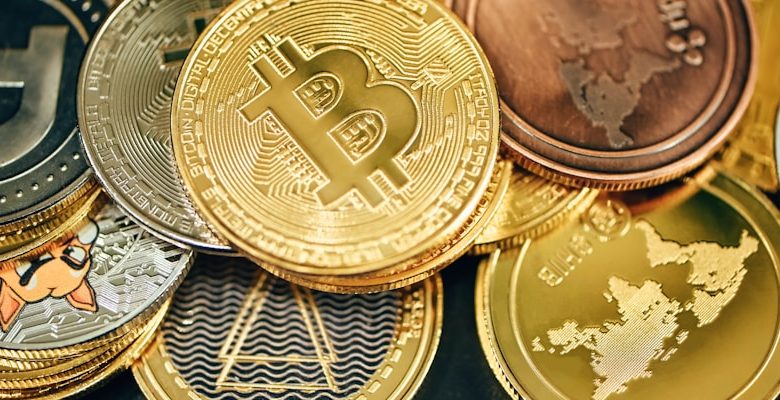What is DeFi? A Beginner’s Guide to Decentralized Finance

- Understanding the basics of DeFi
- Exploring the benefits of decentralized finance
- How DeFi is revolutionizing traditional finance
- Key concepts and terms in the world of DeFi
- The risks and challenges of participating in DeFi
- A step-by-step guide to getting started with DeFi
Understanding the basics of DeFi
Decentralized Finance, or DeFi, is a rapidly growing sector in the cryptocurrency industry that aims to recreate traditional financial systems using blockchain technology. By leveraging smart contracts on decentralized platforms, DeFi applications offer users the ability to borrow, lend, trade, and invest without the need for traditional intermediaries like banks or brokerages.
One of the key advantages of DeFi is its accessibility. Anyone with an internet connection can participate in DeFi platforms, regardless of their location or financial status. This opens up a world of financial opportunities for individuals who may have been excluded from traditional banking systems.
However, it’s important to understand that DeFi is still a relatively new and experimental technology. As such, it comes with its own set of risks and challenges. Smart contract bugs, security vulnerabilities, and regulatory uncertainties are just some of the factors that users need to be aware of when participating in DeFi.
Despite these challenges, the DeFi space continues to innovate and evolve at a rapid pace. New projects and protocols are constantly being developed, offering users a wide range of options for managing their finances in a decentralized manner. As the DeFi ecosystem matures, it has the potential to revolutionize the way we think about and interact with traditional financial systems.
Exploring the benefits of decentralized finance
Decentralized Finance, or DeFi, offers a wide range of benefits to users who are looking to explore alternative financial systems. One of the main advantages of DeFi is its accessibility – anyone with an internet connection can participate in decentralized finance. This opens up opportunities for individuals who may not have access to traditional banking services. Additionally, DeFi allows users to have more control over their funds, as they are not held by a central authority.
Another benefit of DeFi is the transparency it offers. All transactions on the blockchain are publicly recorded, providing a level of visibility that is not always present in traditional financial systems. This transparency can help to build trust among users and reduce the risk of fraud or manipulation. Furthermore, DeFi can also offer lower fees compared to traditional financial services, making it a cost-effective option for those looking to save money on transactions.
Furthermore, DeFi has the potential to revolutionize the way in which financial services are accessed and utilized. By removing the need for intermediaries, DeFi can streamline processes and make transactions faster and more efficient. This can help to reduce the time and cost associated with traditional financial services, making it a more attractive option for many users.
Overall, decentralized finance offers a range of benefits that can make it an appealing option for those looking to explore alternative financial systems. From increased accessibility and transparency to lower fees and faster transactions, DeFi has the potential to revolutionize the way in which we think about and interact with financial services. As the popularity of DeFi continues to grow, it will be interesting to see how it shapes the future of finance.
How DeFi is revolutionizing traditional finance
Decentralized Finance, often referred to as DeFi, is revolutionizing traditional finance in ways that were previously unimaginable. By leveraging blockchain technology, DeFi eliminates the need for intermediaries such as banks and financial institutions, allowing for peer-to-peer transactions and lending without the need for a central authority.
One of the key ways in which DeFi is transforming traditional finance is through the concept of smart contracts. These self-executing contracts are stored on the blockchain and automatically enforce the terms of an agreement without the need for a trusted third party. This not only reduces the risk of fraud but also significantly lowers transaction costs.
Another way in which DeFi is disrupting traditional finance is through the creation of decentralized exchanges (DEXs). These platforms allow users to trade cryptocurrencies directly with one another, without the need for a centralized exchange. This not only increases liquidity but also provides users with more control over their assets.
Furthermore, DeFi is enabling financial services such as borrowing and lending to be conducted in a decentralized manner. This means that individuals can access credit without the need for a traditional credit score, opening up opportunities for those who may have been excluded from the traditional financial system.
Key concepts and terms in the world of DeFi
When delving into the world of decentralized finance (DeFi), it is essential to familiarize oneself with key concepts and terms that are commonly used within this ecosystem. Below are some important terms that you may come across while exploring the realm of DeFi:
- Decentralized: DeFi operates on decentralized platforms that are not controlled by any single entity or authority. This allows for greater transparency and security in financial transactions.
- Smart Contracts: These are self-executing contracts with the terms of the agreement directly written into code. Smart contracts automate processes without the need for intermediaries, reducing the risk of fraud.
- Liquidity: In DeFi, liquidity refers to the ease with which assets can be bought or sold without causing a significant change in price. Liquidity pools are created by users who contribute their assets to facilitate trading.
- Yield Farming: This involves lending or staking crypto assets in DeFi protocols to earn rewards in the form of interest, fees, or new tokens. Yield farmers seek to maximize their returns by moving assets between different protocols.
- Decentralized Exchanges (DEXs): DEXs allow users to trade cryptocurrencies directly with one another without the need for a central authority. DEXs provide greater privacy and security compared to centralized exchanges.
- Collateralized Loans: DeFi platforms enable users to borrow funds by providing collateral in the form of digital assets. Collateralized loans reduce the risk for lenders and allow borrowers to access liquidity without a credit check.
By understanding these key concepts and terms in the world of DeFi, you can navigate this innovative financial landscape with greater confidence and knowledge.
The risks and challenges of participating in DeFi
Participating in DeFi can offer numerous benefits, but it also comes with its fair share of risks and challenges that investors should be aware of. Here are some of the key considerations to keep in mind:
- Smart contract risk: DeFi platforms rely on smart contracts to automate processes, but these contracts are not foolproof and can be vulnerable to bugs or hacking attempts.
- Market volatility: The cryptocurrency market is known for its high volatility, which can lead to significant fluctuations in the value of assets held in DeFi platforms.
- Regulatory uncertainty: The regulatory environment surrounding DeFi is still evolving, and there is a risk that new regulations could impact the way these platforms operate.
- Security breaches: DeFi platforms are often targeted by hackers due to the potential for large financial gains, so security breaches are a real concern for participants.
- Liquidity risk: Some DeFi platforms may struggle with liquidity issues, which can make it difficult for investors to buy or sell assets at fair market prices.
Despite these risks, many investors are still drawn to DeFi due to the potential for high returns and the opportunity to participate in a more open and transparent financial system. By understanding the risks and taking appropriate precautions, investors can navigate the world of DeFi with confidence.
A step-by-step guide to getting started with DeFi
Once you have a basic understanding of what DeFi is, you may be eager to get started. Here is a step-by-step guide to help you begin your journey into the world of decentralized finance:
- Do Your Research: Before diving into DeFi, take the time to research different platforms and projects. Look for reputable sources of information to ensure you are making informed decisions.
- Set Up a Wallet: To interact with DeFi protocols, you will need a digital wallet. Choose a wallet that supports a wide range of cryptocurrencies and provides a high level of security.
- Secure Your Private Keys: Your private keys are the keys to your digital assets. Make sure to keep them safe and secure to prevent unauthorized access to your funds.
- Start Small: When you are ready to make your first DeFi transaction, start with a small amount of cryptocurrency. This will help you familiarize yourself with the process without risking a large sum of money.
- Explore Different Platforms: There are various DeFi platforms and protocols to choose from. Take the time to explore different options and find the ones that align with your financial goals.
- Stay Informed: The world of DeFi is constantly evolving, with new projects and innovations emerging all the time. Stay informed by following industry news and updates to make the most of your DeFi experience.



